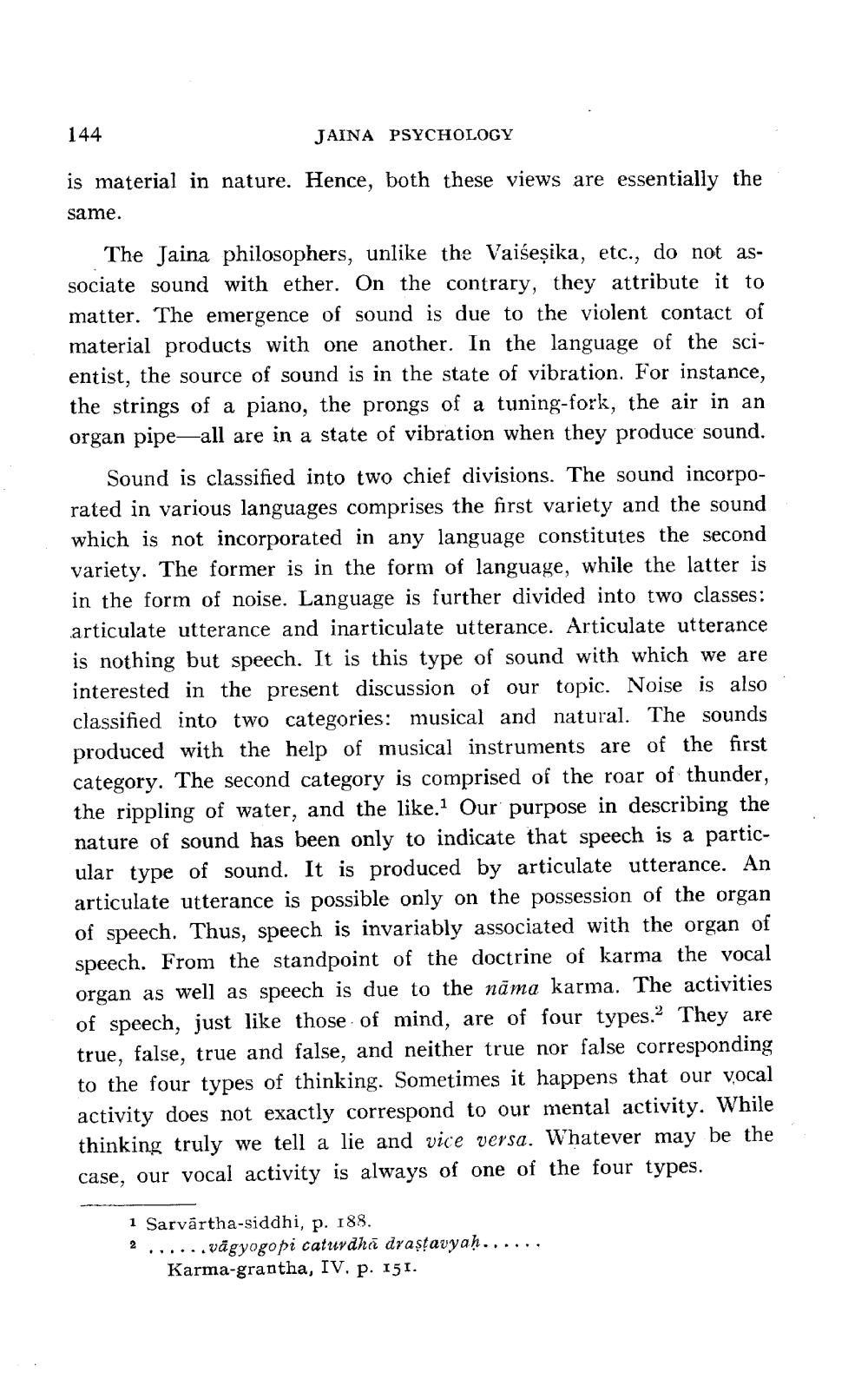________________
144
JAINA PSYCHOLOGY
is material in nature. Hence, both these views are essentially the same.
The Jaina philosophers, unlike the Vaiseșika, etc., do not associate sound with ether. On the contrary, they attribute it to matter. The emergence of sound is due to the violent contact of material products with one another. In the language of the scientist, the source of sound is in the state of vibration. For instance, the strings of a piano, the prongs of a tuning-fork, the air in an organ pipe—all are in a state of vibration when they produce sound.
Sound is classified into two chief divisions. The sound incorporated in various languages comprises the first variety and the sound which is not incorporated in any language constitutes the second variety. The former is in the form of language, while the latter is in the form of noise. Language is further divided into two classes: articulate utterance and inarticulate utterance. Articulate utterance is nothing but speech. It is this type of sound with which we are interested in the present discussion of our topic. Noise is also classified into two categories: musical and natural. The sounds produced with the help of musical instruments are of the first category. The second category is comprised of the roar of thunder, the rippling of water, and the like.1 Our purpose in describing the nature of sound has been only to indicate that speech is a particular type of sound. It is produced by articulate utterance. An articulate utterance is possible only on the possession of the organ of speech. Thus, speech is invariably associated with the organ of speech. From the standpoint of the doctrine of karma the vo organ as well as speech is due to the nama karma. The activities of speech, just like those of mind, are of four types. They are true, false, true and false, and neither true nor false corresponding to the four types of thinking. Sometimes it happens that our vocal activity does not exactly correspond to our mental activity. While thinking truly we tell a lie and vice versa. Whatever may be the case, our vocal activity is always of one of the four types.
1 Sarvārtha-siddhi, p. 188. 2 ......vagyogopi catuvdhā drastavyaḥ......
Karma-grantha, IV. p. 151.




